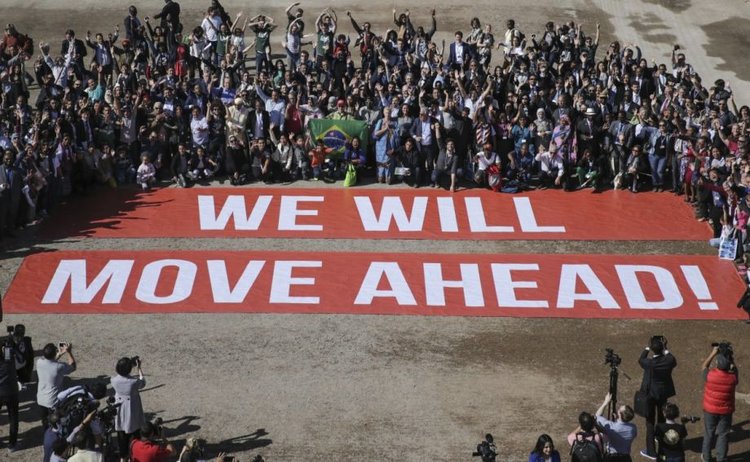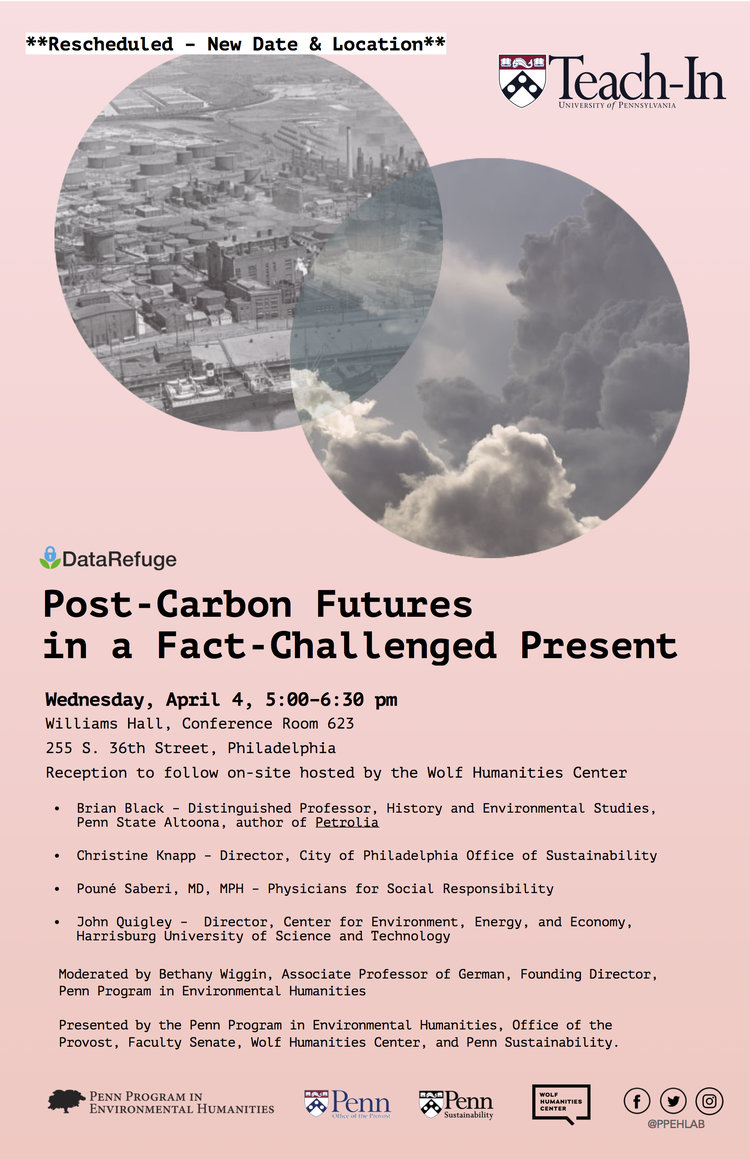Teach-In: Post-Carbon Futures in a Fact-Challenged Present
Humanities Conference Room
Williams 623
255 S. 36th Street
Philadelphia, PA 19104

Domestic American politics have long played a role in climate negotiations, including in the current federal administration’s announced plan to withdraw from the 2015 Paris Climate Agreement. In contrast to the guarded optimism of climate change activists after COP21 in Paris, the emotional climate after the recent COP23 in Bonn was notably gloomy.
Nonetheless, state and city leaders insist #WeAreStillIn, the hashtag used by a coalition of 2,500 leaders from city halls, state houses, boardrooms, and college campuses. who have signed the “We Are Still In” declaration. In the vacuum created by a lack of federal leadership, this coalition and others are organizing across local contexts to bring about a systematic response to urgent environmental issues.
As we study and engage the present and future of the carbon economy, this roundtable brings together experts on energy transitions past and present as well as energy and health policy at the state and local level.
Panelists:
- Brian Black – Distinguished Professor, History and Environmental Studies, Penn State Altoona, author of Petrolia
- Christine Knapp, Director, City of Philadelphia Office of Sustainability
- Pouné Saberi – Physicians for Social Responsibility
- John Quigley – Director, Center for Environment, Energy, and Economy, Harrisburg University of Science and Technology
Moderated by Bethany Wiggin, Associate Professor of German, Founding Director, Penn Program in Environmental Humanities
Reception to immediately follow hosted by the Wolf Humanities Center.
Presented by Penn Program in Environmental Humanities, Office of the Provost, Faculty Senate, Wolf Humanities Center, and Penn Sustainability.
Post-Carbon Futures in a Fact-Challenged Present is presented as a part of the 2018 Penn Teach-In.

